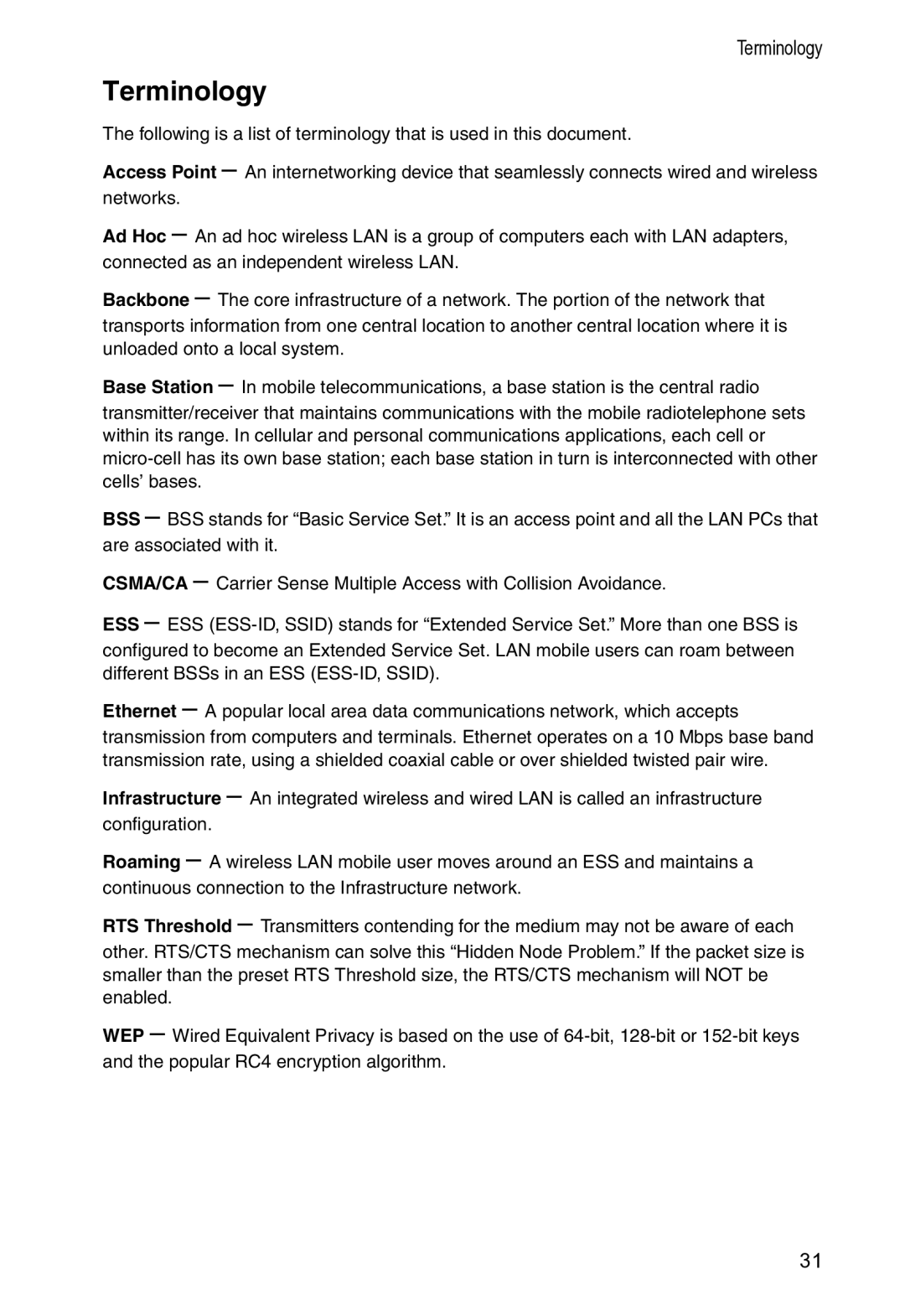RTS Threshold
configuration.
Roaming – A wireless LAN mobile user moves around an ESS and maintains a continuous connection to the Infrastructure network.
An integrated wireless and wired LAN is called an infrastructure
Infrastructure –
ESS – ESS (ESS-ID, SSID) stands for “Extended Service Set.” More than one BSS is configured to become an Extended Service Set. LAN mobile users can roam between different BSSs in an ESS (ESS-ID, SSID).
Ethernet – A popular local area data communications network, which accepts transmission from computers and terminals. Ethernet operates on a 10 Mbps base band transmission rate, using a shielded coaxial cable or over shielded twisted pair wire.
Carrier Sense Multiple Access with Collision Avoidance.
CSMA/CA –
networks.
Ad Hoc – An ad hoc wireless LAN is a group of computers each with LAN adapters, connected as an independent wireless LAN.
Backbone – The core infrastructure of a network. The portion of the network that transports information from one central location to another central location where it is unloaded onto a local system.
Base Station – In mobile telecommunications, a base station is the central radio transmitter/receiver that maintains communications with the mobile radiotelephone sets within its range. In cellular and personal communications applications, each cell or micro-cell has its own base station; each base station in turn is interconnected with other cells’ bases.
BSS – BSS stands for “Basic Service Set.” It is an access point and all the LAN PCs that are associated with it.
An internetworking device that seamlessly connects wired and wireless
Access Point –
Terminology
The following is a list of terminology that is used in this document.
Terminology
– Transmitters contending for the medium may not be aware of each other. RTS/CTS mechanism can solve this “Hidden Node Problem.” If the packet size is smaller than the preset RTS Threshold size, the RTS/CTS mechanism will NOT be enabled.
WEP – Wired Equivalent Privacy is based on the use of
31
